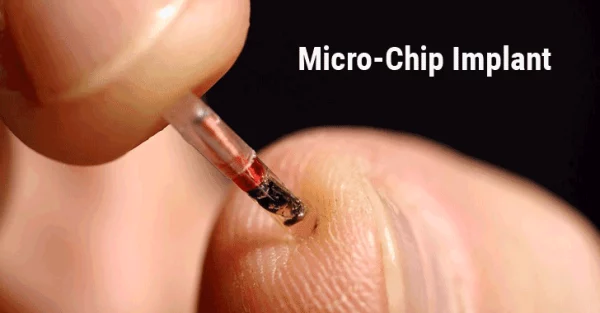In the modern world, technology continuously changes the way we live and work. One of the most prominent recent trends is implanting NFC (Near Field Communication) chips into the human body. Despite being relatively new, this technology has quickly gained attention due to its ability to offer convenience and optimal security. The NFC chip has only 880 bytes of memory, enough to store information such as electronic keys, identification codes, or other essential personal data.
Oesterlund, a Swedish tattoo artist, is one of the first to implant an NFC chip into his hand to serve as a key to his studio. He shares: “When the key becomes part of your body, I never have to worry about losing it or someone stealing it.” This is a typical example of the convenience that this technology can bring to everyday life (Oesterlund, 2021).

Some people view implanting NFC chips into the body as part of the “cyborg” trend—where humans and technology become inseparable. This is also why more and more people, especially in the tech and security industries, are choosing to undergo this procedure. According to a report from AFP, there are currently around 10,000 people worldwide who have implanted NFC chips into their bodies. This not only helps them open doors or make quick payments but also enhances security, as the chips are integrated into the user’s body, preventing loss or theft (AFP, 2021).
An employee from Kaspersky, the renowned cybersecurity company, shared: “At first, I felt very strange having an object in my hand… But then I realized I had forgotten what it was like to carry a keycard or open a door with a physical key.” This highlights the profound change in human habits when NFC technology has replaced everyday items (Kaspersky, 2020).
However, not everyone fully supports implanting NFC chips into the body. Some security experts are concerned about privacy and data security issues. By implanting NFC chips into their bodies, users could become targets for cyberattacks or lose control of their personal information. These experts advise that although the technology provides convenience, there should be strict protective measures in place to prevent potential risks.
“As humans become more dependent on technology, it could create a future where people not only live with technology but integrate into it. But because of this, we must be cautious about the impact that technology could have.” (World Economic Forum, 2022)


HPX24h > Science > Implanting an NFC Chip into the Hand – When Technology and Humans Merge
Top Reads from This Category
Science
Extinct Black Rhinos Could Make a Comeback with Genetic Technology
Science
A New Era in HIV Prevention: Vaccine Set to Launch
Science
Turning Snake Venom into Life-Saving Medicine: A Promising New Yeast Cell Technology
Science
Robot Walker: A Breakthrough in Helping Stroke Survivors Regain Natural Walking
Science
Work 3.5 Days a Week and Live to 100: This Could Be Your Future
Science
Recreating the Mouse Brain in a Virtual World: The Future of Neuroscience
Science
Enhancing Memory with Brain Implants: A New Scientific Revolution
Discover New Topics
Space
The Milky Way’s Central Black Hole: The Asteroid Annihilator
Fitness
hould You Do Cardio or Lift Weights to Burn Calories More Effectively
Science
Mind-Controlled Prosthetics: A Groundbreaking Advancement in Medicine
Health
Daily Habits to Naturally Manage Blood Pressure Without Medication
Fitness
Mesomorph: The Key to Unlocking Your Body’s Natural Strengths
Fitness
Postpartum Fitness: Secrets to Maintaining an Active Routine for a Quick Recovery
Health
Natural Remedies for Relieving Constipation: Small Changes, Big Results – No Medication Needed
Animals
Baboons With Stable Relationships Live Longer and Show Greater Kindness
Fitness
More Flexible – The Secret to Longevity?
Animals
Male Spiders Sacrifice Themselves to Protect Future Generations
Science
Successful Penis Transplant Surgery: A New Breakthrough in Medical Science
Fitness
Muscles: The Golden Key to Effective Health and Performance
Parenting Tips
Why You Can’t Force Your Child to Live the Way You Do?